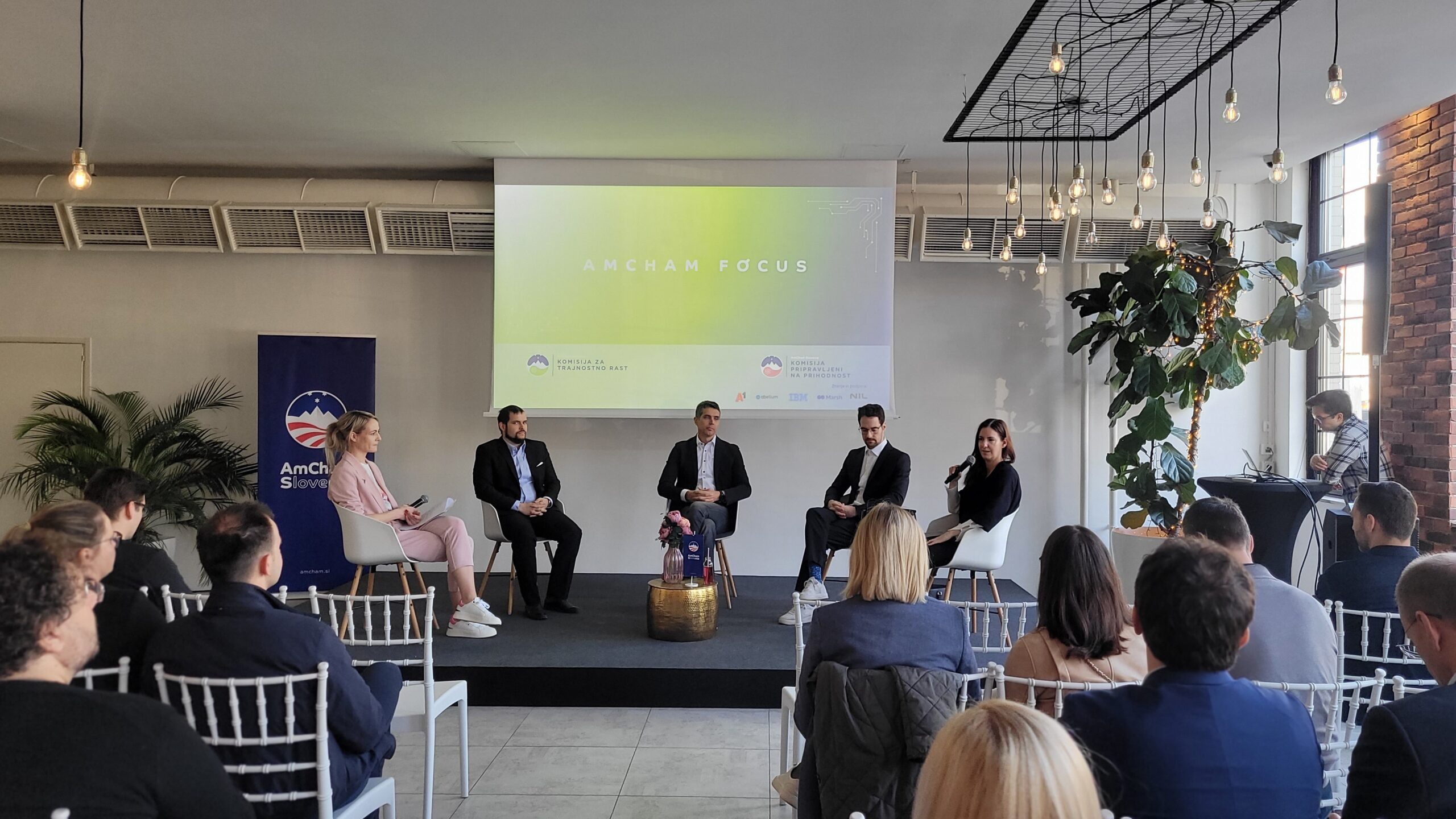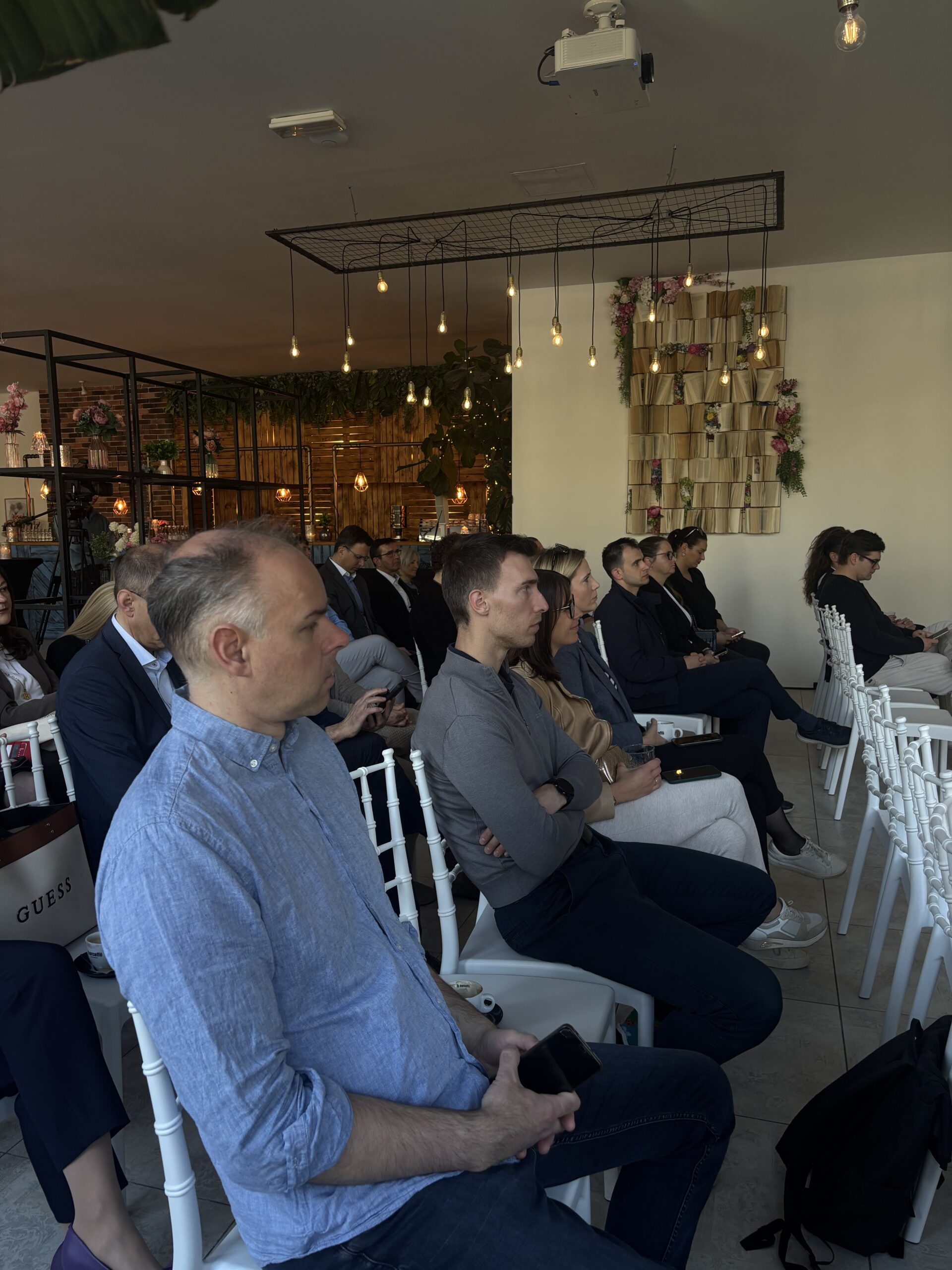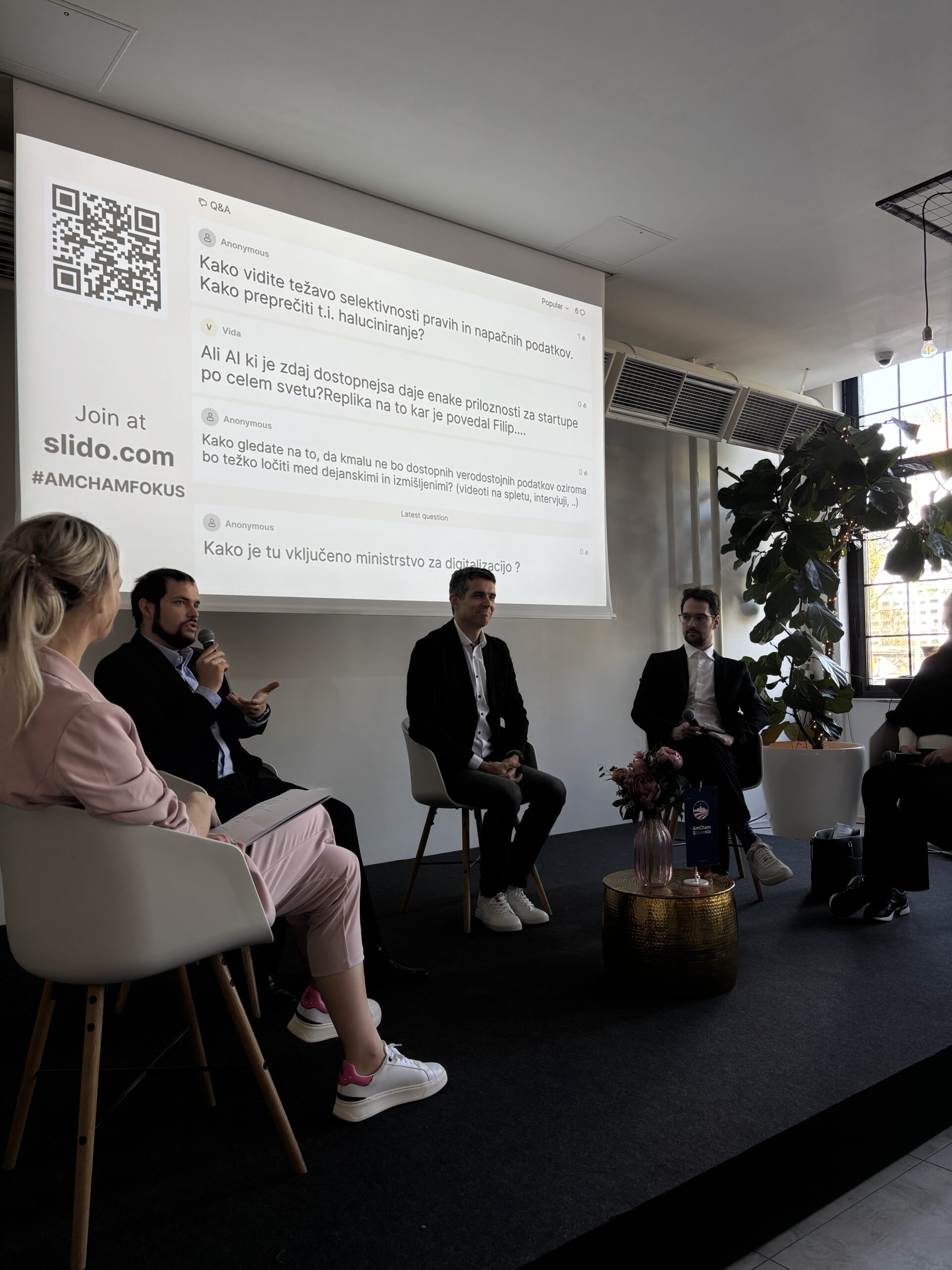AMCHAM FOCUS
At today’s AmCham Focus event, organized by the AmCham Sustainable Growth Committee and the AmCham Ready 4D Future Committee, we explored one of the most pressing dilemmas of our time: is AI a solution or part of the problem when it comes to sustainable development?
Guest speakers agreed that AI offers opportunities for greater productivity, process optimization, and the development of sustainable business models. At the same time, they emphasized the importance of critical thinking in its use, as well as the energy challenges such models bring.
Filip Koprivec, PhD CTO of AFLabs, emphasized: “Small AI solutions are already making everyday life easier, but to achieve long-term potential, we need vision and responsibility … In the long run, AI is undoubtedly a solution.” He added that startups play a key role in developing sustainable applications, as they are agile in identifying user needs and translating them into practical solutions.
Tomaž Valjavec, Azure Business Lead, CEMA Microsoft, pointed out that computing already accounts for 5% of global electricity consumption. On the other hand, AI can significantly improve efficiency – in logistics, resource management, and many other areas. He also presented the shift toward smaller, more specialized, and energy-efficient models, as well as the three stages of AI development: from content generation tools, to agentic AI tools taking on complex tasks, to physical robots. He noted that many countries, especially in the Middle East, are already making massive investments in public system automation and the development of their own AI solutions.
Gašper Slapničar, PhD, Head of Ambient Intelligence at the Jožef Stefan Institute, brought a research-based perspective to the discussion. He presented best practice examples such as the Hidra flood prediction model for the Adriatic region and the SRIP Smart Cities and Communities initiative, where AI is being used for intelligent management of buildings, traffic, and healthcare. He also stressed the need for better collaboration between research institutions and industry to accelerate the transfer of knowledge into concrete solutions.
The debate also touched on the importance of reliable data, interpretation, and digital literacy. Valjavec highlighted the need for critical thinking and education: “What will matter most is how much reflection and judgment we can bring into our everyday use of AI.”
The speakers also highlighted another key factor for the future of Slovenia: the need to integrate the digital language – skills like computer science, coding, and data literacy – as a core component of education. Slovenia is currently lagging behind in this area – digital content makes up only 0.6% of the national school curriculum, while the economy is already facing a shortage of several thousand ICT professionals. If we want to empower young people not just to observe the future, but to help shape it, we must introduce digital literacy early and systematically – starting in primary school.
The event concluded with a message from Živa Jezernik, PhD, Co-Chair of the AmCham Sustainable Growth Committee : “Sustainability also means thinking about who will be using technology in 10 or 20 years. Education, collaboration, and responsibility are the foundations to ensure that artificial intelligence truly serves people and the planet.”









